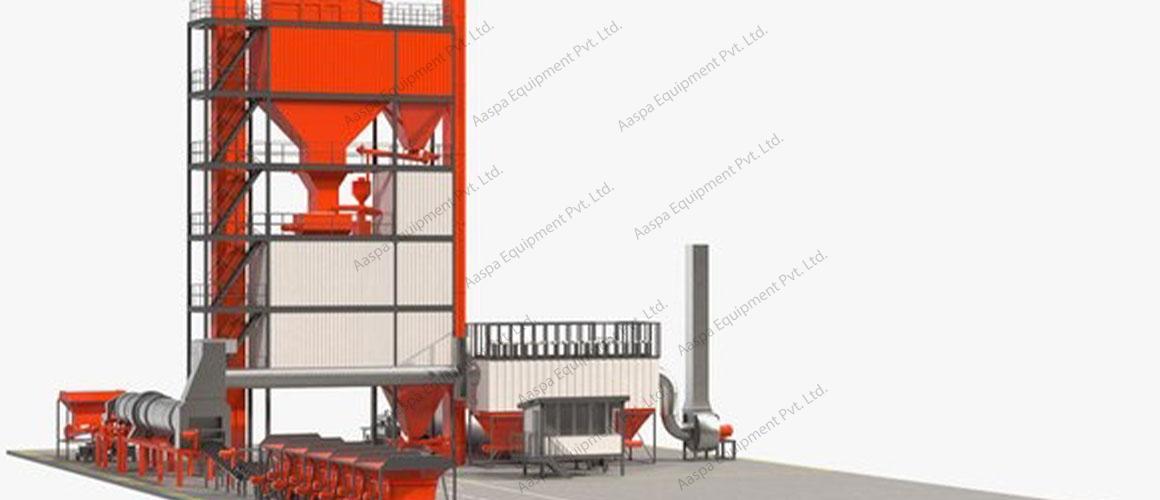Key Strategies to Increase Asphalt Plant Efficiency

Efficiency in asphalt production affects operating costs, energy use, and overall profitability. An optimized plant ensures smooth operations, minimal downtime, and consistent mix quality while reducing fuel and material waste. Achieving this level of efficiency requires a strategic approach to every stage of production, from material handling to final loadout.
Several factors influence asphalt plant efficiency, including equipment condition, process automation, and energy consumption. Poorly calibrated burners, excessive moisture in aggregates, or inefficient mixing can lead to costly delays and quality issues. Implementing the right strategies helps plant operators enhance performance, lower costs, and meet production targets with greater reliability.
This article explores key strategies to improve asphalt plant efficiency, focusing on material handling, dryer performance, automation, mixing processes, waste reduction, maintenance, energy savings, and logistics optimization.
Here are some key strategies to enhance the efficiency of your asphalt plant:
1. Optimizing Material Handling
Proper material handling significantly affects plant efficiency. Ensure aggregates are correctly sized and properly stored to prevent contamination and moisture retention. Excess moisture in raw materials increases drying time and fuel consumption, slowing down production.
How to improve material handling?
- Use covered storage or drying techniques to reduce aggregate moisture.
- Implement conveyor systems with automated controls to streamline movement.
- Regularly inspect and calibrate feeders to ensure precise material proportions.
2. Enhancing Dryer Efficiency
The dryer is one of the most energy-intensive components of an asphalt plant. Inefficiencies in drying aggregates can lead to increased fuel consumption and inconsistent mix quality.
Ways to optimize dryer efficiency:
- Maintain proper burner calibration to avoid fuel wastage.
- Ensure the drum is clean and free of material buildup.
- Use recycled materials where possible, as RAP (Reclaimed Asphalt Pavement) requires less heating.
- Invest in high-efficiency burners and alternative fuel sources for better energy utilization.
3. Upgrading Automation and Controls
Modern asphalt plants rely on automation to regulate processes and minimize human error. Advanced control systems improve accuracy in mixing, temperature control, and material feed rates, reducing waste and improving consistency.
Automation upgrades that boost efficiency:
- Install real-time monitoring systems for fuel usage, emissions, and mix composition.
- Use predictive maintenance software to identify potential breakdowns before they occur.
- Integrate AI-powered systems to adjust operations based on demand and environmental conditions.
4. Improving Mixing Process
An efficient mixing process ensures a uniform blend of asphalt, aggregates, and additives, reducing the chances of segregation and quality issues.
How to optimize mixing?
- Maintain proper paddle wear and ensure regular drum cleaning.
- Use additives that improve workability and reduce production time.
- Monitor mixing time closely over-mixing increases energy use, while under-mixing affects product quality.
5. Reducing Waste and Recycling More
Waste reduction improves efficiency by cutting raw material costs and reducing disposal expenses. Recycling old asphalt into new mixes lowers dependency on virgin aggregates and bitumen.
Steps to maximize recycling:
- Increase RAP utilization by adjusting plant design and storage capacity.
- Use warm mix asphalt (WMA) technology, which allows for lower production temperatures.
- Implement precision dosing systems for better control of recycled material ratios.
6. Regular Maintenance and Inspections
Unplanned downtime due to equipment failure is a major efficiency killer. Preventive maintenance keeps operations smooth and helps identify issues before they escalate.
Best maintenance practices:
- Conduct routine inspections of belts, burners, and mixer components.
- Lubricate moving parts regularly to reduce wear and tear.
- Keep a log of repairs and replacements to track equipment performance.
7. Energy Optimization and Sustainability Measures
Energy costs form a significant portion of asphalt production expenses. Implementing energy-efficient practices not only reduces costs but also makes the plant more environmentally friendly.
Ways to cut energy consumption:
- Switch to alternative fuels such as natural gas or biomass.
- Use waste heat recovery systems to reuse heat in the drying process.
- Optimize airflow in combustion systems for better fuel efficiency.
8. Streamlining Logistics and Loadout Operations
Delays in truck loading and dispatch impact overall plant productivity. Efficient logistics ensure a steady flow of materials and timely delivery of asphalt mix.
How to improve logistics?
- Use automated loadout systems to speed up truck filling.
- Optimize plant layout for smooth traffic flow.
- Implement GPS tracking for trucks to reduce wait times at job sites.
Summing it up
Improving asphalt plant efficiency goes beyond reducing costs. It ensures better resource utilization, consistent mix quality, and smoother operations. Even small adjustments, such as refining burner settings or enhancing material handling, contribute to significant performance gains. With advanced automation, regular maintenance, and energy-efficient practices, production can become more reliable and cost-effective.
For expert guidance on optimizing asphalt plant operations, tailored solutions can make a noticeable difference. Whether it’s upgrading equipment or streamlining processes, Aaspa Equipment is ready to assist. Reach out at info@aaspaequipment.com to explore the best strategies for your plant.
